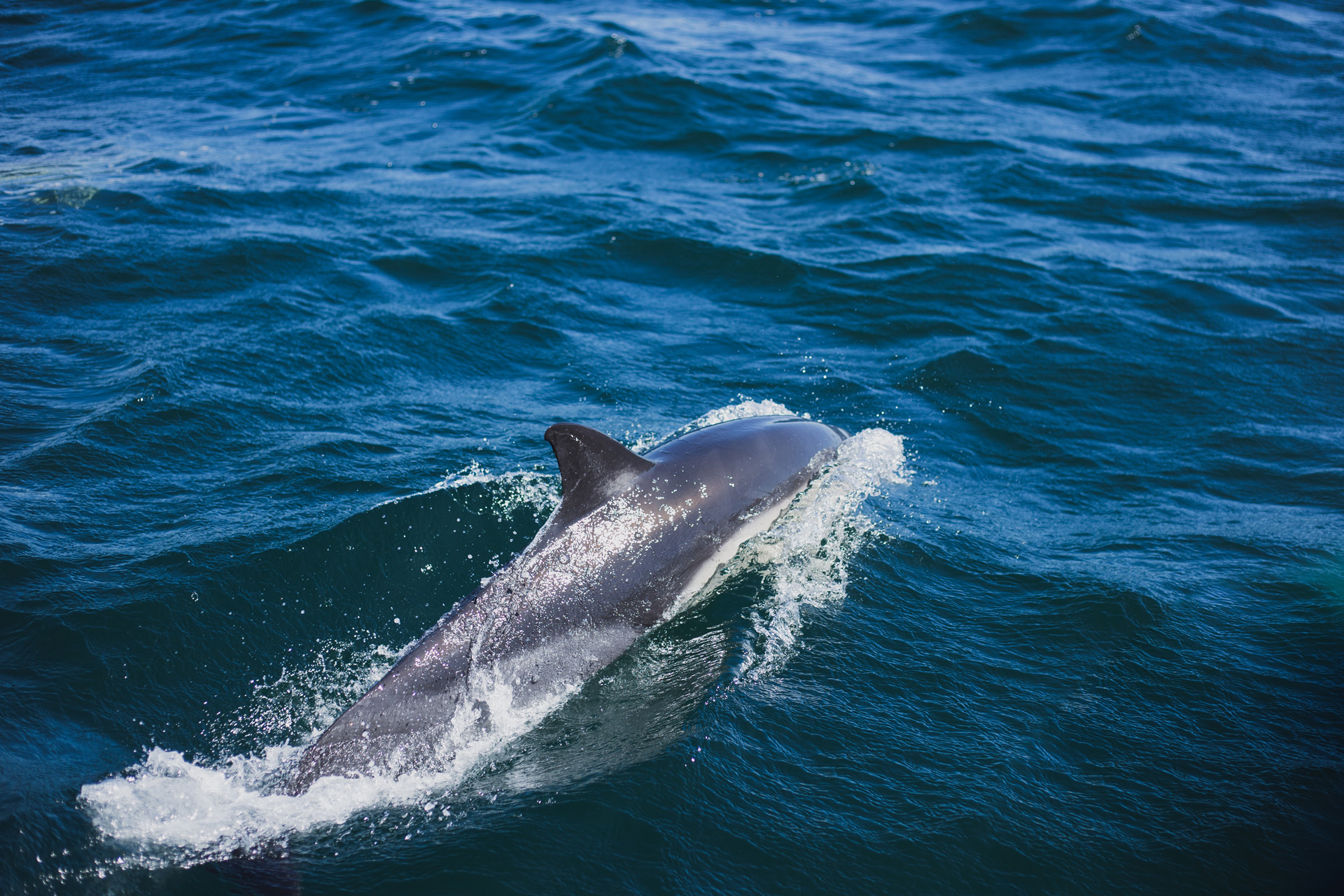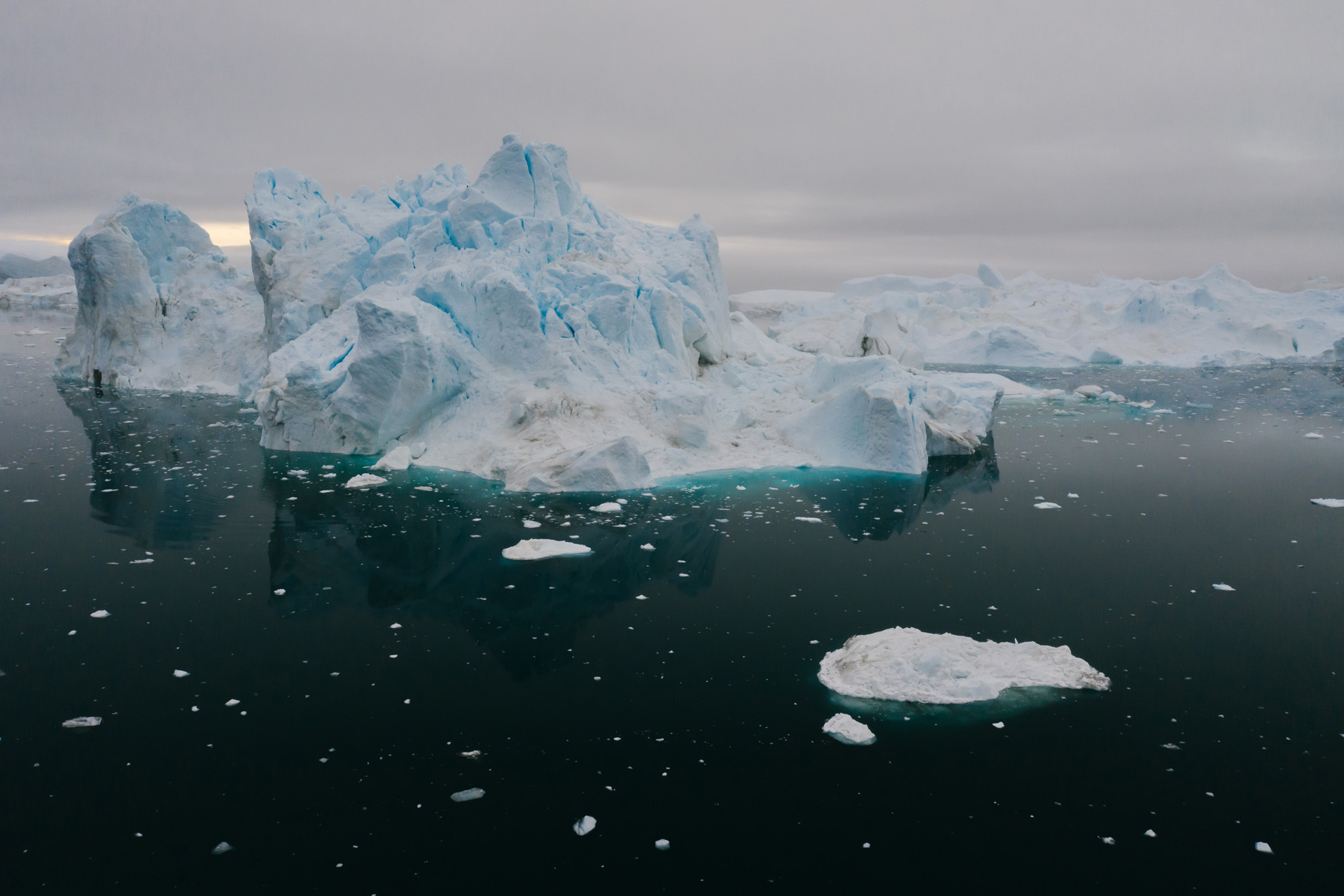Climate News 2023: All The Headlines You Might Have Missed
By
2 years ago
Here's what you need to catch up on

The news cycle is relentless, and oftentimes we can miss out on important information – especially when it comes to the planet and climate crisis. Feeling like you can’t keep up with what’s going on in the world? Here we round up the latest climate news to have on your radar.
Climate News 2023: All The Headlines You Might Have Missed
Leaders At Cop28 Agree To Transition Away From Fossil Fuels
14 December 2023: Leaders at this week’s Cop28 summit have reached a historic agreement to transition away from fossil fuels in an effort to fend off the most catastrophic effects of climate change. The deal was struck after two weeks of tense negotiations, and although it marks a welcome step forward in terms of curbing our reliance on fossil fuels, the notion of ‘transitioning away’ from fossil fuels rather than phasing them out has been viewed by many (including representatives from small island nations) as reluctance to really address the urgency of the climate crisis. Source: The Guardian
Boohoo Caught Breaking Promises On Ethical Overhaul
6 November 2023: A BBC Panorama investigation has found that fast fashion juggernaut Boohoo has failed to uphold promises it made in 2020 to manufacture its clothes fairly and ethically – with an undercover reporter at the company’s Manchester HQ witnessing staff pressuring suppliers to drive prices down, despite deals having already been agreed.
Boohoo’s pledge to do better came three years ago, when reports came out revealing that factory staff in Leicester making Boohoo clothes were earning less than the minimum wage and working in unsafe conditions. A senior barrister later reviewed the brand’s supply chain and found these claims to be true, encouraging Boohoo to launch Agenda For Change, an overhaul of conduct which promised to pay suppliers a fair wage with realistic time scales for product manufacturing.
The undercover reporter investigating was told by a colleague that staff ‘just lie’ to secure cheaper deals with suppliers, making it more difficult for them to make a profit from making Boohoo clothing. While there, the reporter also witnessed the shrinkage of Boohoo’s lead time from 10 to six weeks, which managers at the fast fashion label admitted would be ‘a real challenge’ for suppliers – and after a week’s grace, the brand would introduce a five percent price cut for every week the supplier’s order was late.
You can find out more about the Panorama investigation here.

Unsplash
Welsh Water Admits To Illegally Spilling Sewage Near Protected Dolphin Habitat
19 October 2023: An investigation from the BBC has discovered Welsh Water has been spilling untreated sewage for at least a decade. This has been happening across a number of treatment plants, including Cardigan in west Wales, which spills into the Teifi estuary, home to one of Europe’s largest populations of bottlenose dolphins.
‘This is the worst sewage works I’ve come across in terms of illegal discharges,’ said former University College London professor Peter Hammond, who collected the data and submitted it to the BBC.
When presented with the data, Welsh Water admitted between 40 and 50 of its wastewater treatment plants are currently operating in breach of their permits.
‘We’re not proud of this at all,’ said Steve Wilson, managing director for wastewater services at Welsh Water. ‘It’s a very uncomfortable position to be in – but it’s not for the want of trying. We have been trying to fix this.’ A new treatment plan for Cardigan is due to begin in 2025.

Unsplash
Genetically-Engineered Trees Could Help Us Remove Carbon Dioxide From The Atmosphere
16 October 2023: Living Carbon, a California-based climate biotech firm, is genetically altering trees to help them absorb more carbon dioxide. This is achieved by improving the efficiency of photosynthesis and thereby enabling the trees to capture and store a higher volume of carbon. Living Carbon’s project is still in the early stages of development, but many scientists are turning to genetic engineering to help us fight the climate crisis. Source: The Guardian
Sport England Asks For More Climate Action In Exchange For Funding
12 October 2023: National governing body Sport England will soon be changing the criteria for its funding opportunities, with conditions that sporting organisations will now need to do more to fight against climate change. Sport England, which invests more than £300 million of public money each year on organisations like the England and Wales Cricket Board and the Rugby Football Union, has indicated that they want the new conditions to galvanise the sporting world to get more involved when it comes to protecting the planet.
‘The status quo is no longer an option,’ said Chris Boardman, Sport England Chairman and former Olympic cycling champion. ‘Without veering into hyperbole, it’s so that we don’t all die… Fundamentally we have got to move from a position of “inform and encourage” to one of “enable and require”.
‘In a sense it’s like marginal gains in sport,’ he told The Guardian. ‘Ironically, rather than set a large target years in the future, we are asking what small things we can do now and what will that add up to? And I suspect it will be an awful lot.’
Sport England will reveal its full plan for new funding conditions later this week at a summit in Bristol.

Getty Images
New Single-Use Plastic Ban Coming Into Force
29 September 2023: Your takeaways are about to start looking a little different. From 1 October 2023, the UK government is issuing a new ban on single-use plastic. This means no business will be allowed to sell single-use plastic cutlery, balloon sticks or non-polystyrene cups in England, following last year’s ban on single-use straws, stirrers and cotton buds containing plastic.
While all efforts to reduce plastic are a step in the right direction, the rule has prompted some backlash. The Local Government Association (LGA) has said not enough businesses or individuals are aware of the changes, and many have criticised the lack of forewarning.
Others believe it’s simply not enough, such as Anna Diski, plastics campaigner for Greenpeace UK, who told the BBC: Legislating token bans on a few single-use plastic items every few years… [is] completely inadequate to the scale of the problem. Instead of this piecemeal approach, the government needs to address the problem at source and roll out a serious strategy to cut how much plastic is being produced.’

Solar Power and EV Growth Creating Hope For Staying Within 1.5 Degree Limit
26 September 2023: In light of the new Net Zero report, published today (26 September), experts have said they are feeling more positive about the world staying within the 1.5 degree global heating limit. This is particularly down to developments in renewable energy and green investment. Fatih Birol, the executive director of the International Energy Agency, said in an interview: ‘Despite the scale of the challenges, I feel more optimistic than I felt two years ago. Solar photovoltaic installations and electric vehicle sales are perfectly in line with what we said they should be, to be on track to reach net zero by 2050, and thus stay within 1.5C. Clean energy investments in the last two years have seen a staggering 40 percent increase.’
However, the report also advises bringing forward net zero targets, stating: ‘almost all countries must move forward their targeted net zero dates’. Birol hopes that at COP28, world leaders will commit to a tripling of renewable energy by 2030, plus a 75 percent cut in methane from the energy sector.
Rishi Sunak Calls For Delay On Petrol Can Ban
21 September 2023: UK Prime Minister Rishi Sunak announced a shift on green policies this week, citing that he wants to avoid any ‘unacceptable costs’ to the British public by moving too quickly. Unpicking many of the polices laid out by former PM Boris Johnson, Sunak laid out the following key changes:
- The ban on the sale of new petrol and diesel cars will be delayed by five years, meaning that the requirement for all cares to zero emission won’t be enforced until 2035
- The ban on new fossil fuel heating for off-gas-grid homes will be delayed by nine years, coming into effect in 2035
- The Boiler Upgrade Grant will be raised by 50 percent (so it will sit at £7,500) to help households replace gas boilers
- The government will keep the ban on the sale of new gas boilers in 2035, but introduce new exemption for poorer households
- The requirement for landlords to ensure all rental properties have an Energy Performance Certificate of grade C or higher from 2025 has been scrapped
The PM has also indicated he will be scrapping various other proposals (that weren’t formal government policy), like hiking up air fares to discourage foreign holidays and taxes on meat consumption.
It’s thought that, without these bans coming into effect on their previously year goal, that the UK will miss its target to hit net zero (where a country is no longer adding to the overall amount of harmful greenhouse gases in the atmosphere). The move also comes during the same week as the UN summit on climate action, which Sunak declined to attend. Scottish First Minister Humza Yousaf, who was at the summit, commented to the BBC: ‘The same day the whole world is gathered to talk about what more we can do, we have a UK prime minister rolling back on [the UK’s] commitments.’
Former Conservative minister and chair of the COP26 climate summit, Sir Alok Sharma, commented: ‘My concern is whether people now look to us and say, “Well, if the UK is starting to row back on some of these policies, maybe we should do the same”.’
The announcement has understandably had a big impact on global car manufacturers, who have been making the move to electric vehicles with the promise that they will be invested in. Korean carmaker Kia, for example, currently has plans to launch nine new electric vehicles over the next few years. It has since said that Sunak’s announcement ‘alters complex supply chain negotiations and product planning, whilst potentially contributing to consumer and industry confusion.’

Antarctic Winter Sea Ice Reaches Record Low
18 September 2023: There’s a crisp, autumnal bite in the British air as autumn unfolds – but the Southern Hemisphere is hotting up as winter makes way for spring. It’s a worrying sign going into the summer months, then, that Antarctica’s sea ice levels are already below average. There’s much less ice than anticipated per the 14 September median, which illustrates the average level of sea ice on this day between 1981 and 2010. As summer descends, this level will continue to shrink as ice melts. This is extremely dangerous for penguin populations, which struggle to survive without sea ice to live on.
‘Climate change is happening faster than we thought,’ Mike Childs, head of Policy, Science and Research at Friends of the Earth, tells the BBC. ‘We’re seeing these alarm bells going off around the world. We’ve got the sea ice in Antarctica, we’ve got Canadian wildfires we’ve seen all through the summer, extreme rain perhaps connected to the dreadful situation in Libya, we saw much of Europe under a record-hitting heatwave this summer. This is just another wake up call to governments to say we really need to start taking this issue seriously. We really need to stop putting oil on the fire of climate change by giving the go-ahead to new oil and gas licenses or failing to curb emissions, because as the sea ice goes and as we see these extremes around the world, we’re going to get more and more dangerous weather events around the world, harming more people and harming our economies and food production.’

Image: Unsplash
Two Dams Burst & Cities Flood After Huge Storm in Libya
13 September 2023: Libya is grappling with devastating floods after a storm on 10 September. Torrential rain caused two dams to burst in the port of Derna, and part of the city has since been swept into the sea. More than 5,300 people are reported to have died in the tragedy, and over 10,000 are missing. The death toll is expected to exceed 20,000 as families and rescue workers search Libya’s shores. Source: BBC
12 September 2023: The National Oceanic and Atmospheric Association (NOAA) has announced that the US has set a new record for the number of billion-dollar climate disasters occurring in a single year. From storms and wildfires to floods and tropical cyclones, 23 extreme weather events this year have cost the nation at least $1 billion. The total cost of these disasters is estimated to be around $57.6 billion, according to the NOAA. Source: Guardian
Small Island Nations Challenge High-Emitting Countries In Court
11 September 2023: A tribunal beginning in Hamburg today will see high-emitting countries challenged by small island nations disproportionately affected by climate change. Regions including the Bahamas, Tuvalu and Vanuatu, as well as Antigua and Barbuda, will go before the International Tribunal for the Law of the Sea with the aim of seeking climate protection by determining whether greenhouse gas emissions absorbed by the sea should be considered pollution. The marine environment is a hugely important tool for combating climate change, helping to absorb around a quarter of carbon dioxide emissions, but it is consequently threatened both by these emissions and by rising temperatures; meanwhile, small island nations themselves are under huge threat of flooding and extreme weather. The case calls for higher levels of marine protection under the UN Convention of the Law of the Sea, seeking an advisory opinion on the obligations of bigger countries to reduce greenhouse gas emissions in our seas. Source: Guardian
Ecuador Votes Against New Oilwells In The Amazon
23 August 2023: In a historic referendum, Ecuadorians have voted against new oilwells in Yasuní national park in the Amazon. Home to indigenous Ecaudorian peoples, Yasuní is one of the most biodiverse regions on Earth – and this once-in-a-lifetime decision is the first ever example of a country limiting fossil fuel extraction via democratic voting. More than 58% of voters were in favour of halting the development of the oilwells, supporting the decade-long calls from young activists fighting to protect the region. Although oil will continue to flow in other areas of the Ecuadorian Amazon, Yasuní’s oil will now remain in the ground, with state-owned oil company Petroecuador required to cease its work in the area and restore the drilling site. Source: The New York Times
California Hit By Huge Tropical Storm
22 August 2023: After sweeping into Mexico’s Baja California peninsula on Sunday morning, the deadly Storm Hilary has now hit California. It’s the first tropical storm to arrive in the US state in 84 years, and it’s causing widespread chaos: many California residents are being forced to evacuate their homes, and the desert city of Palm Springs has been completely cut off by huge floods. Meanwhile, the Death Valley National Park experienced an entire year’s worth of rain in a single day. The storm is expected to move across Nevada and cause more flash flooding in the coming days. Source: BBC
Frightening Heatwaves Hit The USA
21 August 2023: From the wildfires sweeping across Europe to the devastating floods in Hawaii, the world is locked in the grip of extreme weather this summer – and central America is the latest victim, with scorching temperatures recorded in numerous regions. Excessive heat warnings (issued when the maximum heat index temperature is forecast to be 40°C or higher for at least two days, with nighttime temperatures remaining above 23°C) have been declared in more than seven different states, and many states including Texas have experienced record high temperatures. The heatwave is expected not only to continue, but to spread across the USA. Source: The Guardian

Oceans Reach Hottest Recorded Temperature
7 August 2023: The EU’s climate change service, Copernicus, confirmed that the average daily global sea surface temperature beat a 2016 record this week – reaching 20.96C. This is the hottest ocean temperature ever recorded. Scientists warn that, if this trend continues, it could have drastic consequences.
As one of our biggest climate regulators, oceans soak up heat, produce half of the Earth’s oxygen and drive weather patterns. But when water gets warmer it has less ability to absorb CO2, meaning more of the gas stays in the atmosphere, and contributes to the melting of glaciers and therefore rising sea levels. They can also disturb, and in some cases kill, marine species – many are forced to move in search of cooler waters, which upsets local food chains.
‘The water feels like a bath when you jump in,’ said Dr Kathryn Lesneski to the BBC in a recent interview. She is currently monitoring a marine heatwave in the Gulf of Mexico for the National Oceanic and Atmospheric Administration. ‘There is widespread coral bleaching at shallow reefs in Florida and many corals have already died.’ Source: BBC
July Is Set To Be The Hottest Month On Record
28 July 2023: As scientists confirm that July is on track to be the hottest month on record, UN Chief António Guterres has issued a sombre warning: in a speech at the UN Headquarters yesterday, he declared that ‘the era of global warming has ended’ and ‘the era of global boiling has arrived.’ He urged us all to take ‘dramatic, immediate’ action to limit the already devastating effects of climate change. Soaring temperatures and frightening wildfires have made it clear in recent days that we must indeed act now to protect the planet and ourselves. Source: BBC
Climate Activists Are Challenging New Oil And Gas Fields
25 July 2023: Greenpeace is contesting new oil and gas licensing approved by the government, arguing that it is incompatible with the UK’s climate goals. Analysis carried out by Greenpeace suggests that the North Sea licenses already approved in the last two years will produce as much carbon dioxide as 14 million cars – or the total annual emissions of Denmark. Source: The Guardian
Climate Experts Warn We’ll Miss 1.5C Warming Limit
21 July 2023: Leading British climate scientist and former head of the UN climate body Professor Sir Bob Watson has revealed doubts that we’ll miss our target to limit global warming to 1.5C. The warning comes at a time when most of the world is experiencing a severe heat wave, and passing the limit could expose millions more people to devastating climate events. The 2015 UN conference in Paris saw the world pledge to try to limit the temperature increase to 1.5C above pre-industrial levels, and since become a key target when making decisions on the world stage – but climate scientists have consistently warned that we are not cutting our emissions quickly enough. Source: BBC
The EU Proposes First Soil Law
5 July 2023: This week in Brussels, the EU set out plans for the continent’s first-ever soil law, which will aim to undo some of the damage done by intensive farming. This would mean states must monitor soil health against criteria such as erosion and fertiliser use – but the proposal would not oblige them to achieve minimum soil health levels.
Big food companies including Unilever have criticised the plan, deeming it unambitious. The One Planet Business for Biodiversity, a coalition of companies including Unilever, Nestle and Danone, said in a statement: ‘Despite the worrying state of EU soils and the solutions mentioned in the proposal, it fails to propose an ambitious framework for coordinated development of soil health at the European level.’ Source: Reuters

Unsplash
Monday Was The Hottest Day Of All Time
5 July 2023: In yet another worrying milestone, it was confirmed yesterday that Monday 3 July was the warmest day since records began. The average temperature topped 17 degrees Celsius for the first time – a result of the El Niño weather event plus carbon dioxide emissions. This surpassed the previous record of 16.92 degrees Celsius, reached in August 2016. Source: BBC
Thames Water Fined Over Gatwick River Pollution
5 July 2023: Thames Water has been charged with discharging millions of litres of undiluted sewage into two rivers near Gatwick, resulting in the deaths of thousands of fish. The company admitted to pumping raw sewage into the Gatwick Stream and River Mole in East Sussex – a move that was branded a ‘reckless failure’ in operations.
At a sentencing at Lewes Crown Court yesterday (4 July), it was revealed that investigators had found almost 1,400 dead fish in both waterways – though the Environment Agency believes many more were killed. Eyewitness accounts, meanwhile, described the rivers turning ‘black’ and ‘grey’ as a result of the pollution.
Thames Water has been fined £3.3m, adding to a number of fines brought to the business over the past six years, totalling £35.7m. Source: BBC

A Record-Breaking Hot June Caused Unprecedented Wildlife Deaths
2 July 2023: It’s no surprise to anyone that the world is getting hotter – with the UK experiencing its warmest June on record this year, according to provisional figures from the Met Office. And now, environmental groups have warned that these high temperatures have led to increased deaths in fish, insects and plants.
Mark Owen from the Angling Trust told BBC News: ‘The reports of the number of fish death incidents in rivers for this time of year has been unprecedented. I would normally expect rivers to be affected later in the summer when it’s hotter and drier.’
Ali Morse from the Wildlife Trusts, meanwhile, highlighted that insects like bees and butterflies will have less to eat, as many flowering plants wilted in the high temperatures. ‘Every month seems to be the hottest, the driest, the wettest, or whichever record-breaking event it is. If we have a one-off pollution event or a wildfire, then there is normally time for nature to bounce back, but now it seems to be continually pounded by extreme weather,’ she explained. Source: BBC





